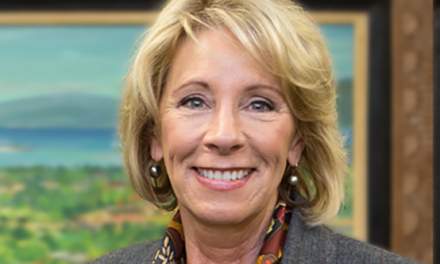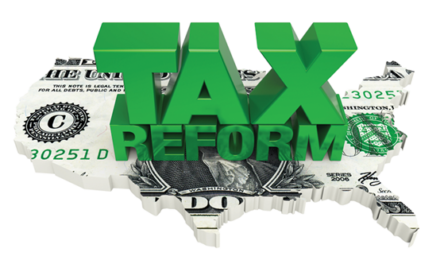As Washington shifts its focus to the 2016 elections, is it possible that education could take center stage?
Washington has a very short attention span. Although the new Congress has been in place for just a couple months, pundits and politicos are already looking ahead to the next big thing. Like a fickle teenager, Washington has decided the new Congress is “over” and instead is focusing on the 2106 presidential race.
For the next 20 months, this town will be speculating and prognosticating on all things presidential. Throughout that time, we’ll see potential candidates come and go, their personal and professional lives dissected and discussed by the media and its social media handmaidens. Some issues will likely loom large on the campaign trail (the economy, immigration, and health care), and others will remain at the margins. No one ever really knows if one issue or which issue will rise above all others and capture the public’s attention.
Many education types in Washington are already asking whether the Common Core could be that issue. Ever since Jeb Bush revealed that he is contemplating a presidential bid in 2016, there has been speculation on whether he will cave to the more conservative members of the Republican Party and abandon his support for the Core. Conservative Republicans — perennially uncomfortable with federal involvement in education — could fight back hard against Bush, setting the stage for a major education showdown leading up to 2016.
Who’s the ‘education president’?
The controversy over Jeb Bush and the Common Core got me thinking about whether we’ll ever see a candidate fully declare his/her intention to be “the education president.” Jeb Bush certainly has the bona fides to make a claim for that title. In Florida, he was considered an “education governor,” and his post-gubernatorial life also has been focused on education. Whether Bush can stand up to his critics and remain committed to his own education agenda will tell us a lot about his candidacy and his potential to be an education president.
If you want the public to trust your vision for education, then talk about what they care about and understand.
John Merrow, the education correspondent for “PBS Newshour” and president of Learning Matters, a nonprofit media company in New York, recently asked a number of leading scholars and educators a similar question: Which U.S. president was “the best” for public education? (See http://learningmatters.tv/the-forum/.) The answers almost all focus on the Eisenhower through Bush era and document each president’s attempt to define a federal role for education. Within each commentary, the unwieldiness of this task is apparent. Each administration faced its own set of critics and controversies and made different choices about how best to maneuver around the obstacles of a locally controlled education system.
Powerful goals
Those who were successful directed the federal lens toward some very clear and powerful goals. Among the respondents to Merrow’s question, Eisenhower and Johnson stand out as the two presidents who are truly worthy of the title “an education president.” Eisenhower’s enforcement of the Brown vs. Board of Education decision led to the desegregation of the nation’s public schools, and Johnson made educational opportunity and equity a central component of his War on Poverty. Other answers credit George H.W. Bush and Bill Clinton for laying the foundation for higher standards by defining national education goals. George W. Bush is recognized for immortalizing the phrase “No Child Left Behind” and for holding schools accountable for the performance of all student groups.
Jim Guthrie of the George W. Bush Institute summed up what it takes to be an education president this way:
The principal criterion for fame in the education field is that you shift the paradigm . . . You can accomplish this goal through multiple means. You can sponsor and orchestrate enactment of a bill, make speeches, support a movement, start a bandwagon, use the bully pulpit, spotlight a problem, or provide incentives or impose penalties that alter how the public sees schools, how policy makers perceive improvement opportunities, and how professional educators pursue their practice (2011).
With that in mind, I decided to offer any wannabe education presidents a little advice of my own:
As you hit the campaign trail, stop worrying about what your party thinks of your ideas for education because chances are the party does not accurately reflect the feelings and concerns of any major voting bloc. Because of its locally controlled federalist structure, our nation’s public education system is complicated and thorny. As a result, issues surrounding education in the U.S. are often volatile and difficult to control. This has been especially true since the Common Core set off a firestorm that caused the sands to shift among traditional education constituencies. Even once-held truisms about political parties are being challenged. For instance, many of us believe conventional wisdom will not hold true regarding Jeb Bush’s support for the Common Core and his ability to win the Republican nomination. A recent poll by the independent organization Third Way shows that the Democratic Party’s edge on education has dwindled, likely because Democrats are seen as the party that is “pouring money into a broken system” and “blaming poverty for problems with public education.” All bets are off regarding who supports what in education so you might as well just speak truth to power and stand up for what you believe to be the right way forward.
On the campaign trail, never, ever utter the words “our public education system is broken.” I have no problem with candidates talking about how they want to improve or strengthen the nation’s public schools, but, for goodness sake, please stop using this expression. Our public education system is not broken. Like many other public systems in the U.S., it was developed to meet a vastly different set of demands and is suffering under the weight of all the new demands we are placing on it. We do not need to blow up the current system to meet the challenges facing public education. We need the leadership and the political will to protect what we know works within the system and change what we know does not.
Who was an “education president”? Lincoln? Eisenhower? Johnson? Carter? G.W. Bush?
Use evidence as your North Star when offering solutions to the challenges facing public education. The Obama Administration has made a strong case for using rigorous evidence to support social policy. As a result, the need for more evidence-based policy making in education is a notion that is gathering steam. Jump on that bandwagon by defining what you mean by “evidence-based” and using education programs and policies that meet the criteria (and earn high marks from educators in the field) as a guide for policy making.
Finally, and perhaps most important, understand that education is a deeply personal issue for many voters. While standards, testing and accountability may be important issues for educators and policy makers, the public sees education in a totally different light. If you want the public to trust your vision for education, then talk about what they care about and understand. The last few years have shown us that the public has deep concerns that the nation’s public education system is prioritizing standardization and testing and ignoring the parts of education that they see and hear about every day: teachers, curricular materials, homework assignments, and the quality of the principal. When articulating your vision for education in America, talk about how your ideas will affect what parents and the general public care about. The Clinton Administration may not have affected education as profoundly as the Eisenhower and Johnson administrations, but both Clinton and his education secretary, Richard W. Riley, understood that education is as personal an issue as it is a political one.
While these few ideas hardly scratch the surface of what it will take for a future candidate to earn the title of “education president,” they reflect what many in Washington know all too well: Paradigm shifting in the education space is not for the faint of heart. Let’s hope 2016 brings us at least one candidate who is up for the challenge and wants to be remembered as the best education president ever.
Reference
Guthrie, J. (2011). Three candidates stand out. PBS Newshour. http://learningmatters.tv/blog/web-series/discuss-who-was-americas-best-education-president/7879/
CITATION: Ferguson, M. (2015). WASHINGTON VIEW: So you want to be an “education president”? Phi Delta Kappan, 96 (6), 72-73.
ABOUT THE AUTHOR

Maria Ferguson
Maria Ferguson is an education policy researcher, thought leader, and consultant based in Washington, DC.










